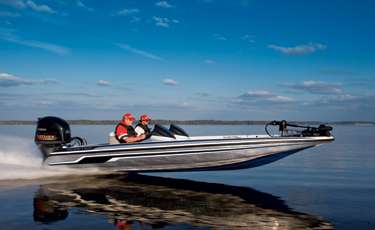
It amazes me how anglers will spend hours taking care of their boats yet ignore their trailers.
It makes no sense when you consider that ol' Betsy spends most of her time sitting on that trailer and is dependent upon it when you're flying down the highway at 60-plus mph or bouncing through potholes on backcountry roads.
I've seen trailer neglect a couple of times already this season. A good friend showed up at a weeknight tournament with a flat tire — and no spare.
Another buddy had the bunks on his boat rot and break while he was launching. And when he got the trailer fixed and pulled his boat out of the lake a few days later, he blew a tire that obviously had seen better days.
So, the message here is simple: Spend a little time at the boat ramp this fall inspecting the trailer after you've launched. You may quickly discover a problem in the making and will have time to prevent it.
Here are three of the most common problems reported to BoatUS Trailering Club's hotline by members needing assistance:
1. Flat tires
Tires should be inspected frequently and inflated to proper PSI. Make sure you have a matching spare and the proper jack that works with your trailer. Keep in mind that most vehicle jacks don't work with trailers. Check the tires for tread wear and dry rot.
2. Bearing problems
Wheel bearings should be inspected, cleaned and repacked at least once a year on those trailers that don't have self-lubricating Vault hubs, which do need to be serviced every five years. Check the hubs for excessive heat when you stop on every trip. It's a sure sign of a problem.
3. Axle problems
Those immersed regularly in saltwater need special attention, but all axles should be examined to ensure bolts are snug and there is no rust or corrosion. A broken axle along the highway is not a good thing.
Potential problems don't end there, either, especially with older boats and trailers.
For example, it's wise to check winch straps or ropes for fraying or rot. There are times when driving a boat onto the trailer isn't practical, and an unexpected, broken winch rope certainly doesn't make the job any easier. And, of course, trailer lights should be checked frequently, including brakes and turn signals. Bulbs will burn out, and that could cause an accident.
As noted earlier, the wood beneath carpeted trailer bunks on economy model trailers will rot over time, especially if built with untreated lumber. If bolts holding the braces are loose and can't be tightened, that's a dead giveaway. When replacing the bunks, be sure to use treated lumber and quality indoor/outdoor carpet. If the bunks are good, feel for any screws or other hard objects that have worked their way to the surface. They can cause serious damage to the bottom of the boat without you knowing — until it's too late.

